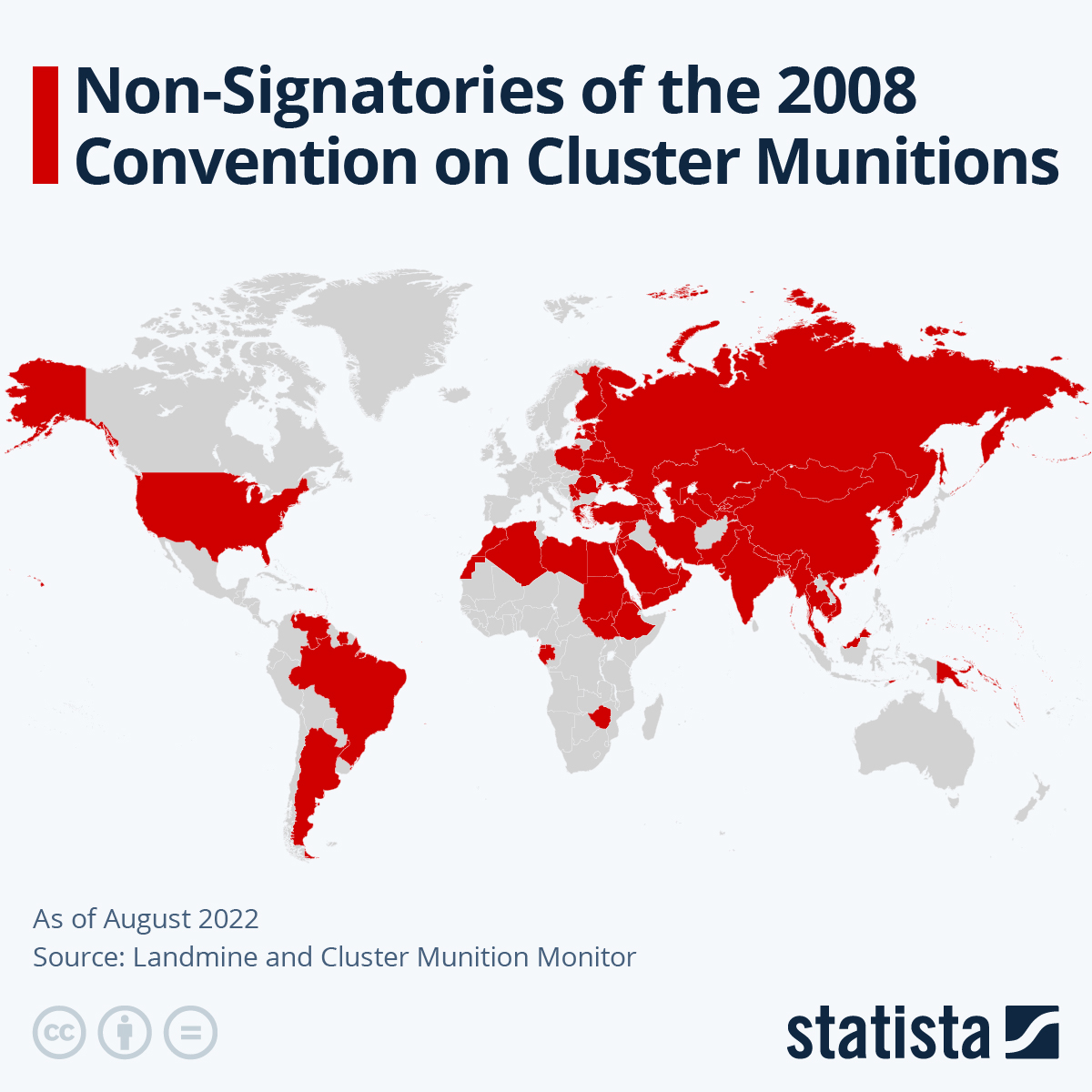
Ex-Defence Secretary backs report urging UK to withdraw from anti-landmine treaty

A former Defence Secretary has backed a report calling for the UK Government to quit the Cluster Munitions Convention and Ottawa Convention, the anti-landmine treaty.
The new report published by Policy Exchange has urged the Government to pull out of these treaties and lead Europe to rebuild its stockpiles of both critical weapons systems.
Sir Ben Wallace wrote in the foreword: "I have first-hand experience of how the Ottawa Treaty prevented us and others from helping Ukraine.
"I was beset by lawyers applying old and out-of-date treaties to new capabilities, which are vital to saving life and to countering Russian lethality."
The two treaties have had a "deleterious effect" on British combat power, according to Policy Exchange, a leading UK think-tank.
It argued that the treaties were artefacts of the post-Cold War international security architecture.
Both treaties are not "fit for purpose" at a time when Russia threatens the UK and Europe directly after their illegal invasion of Ukraine three years ago, Policy Exchange warned.
It comes after defence ministers from Estonia, Latvia, Lithuania and Poland recommended that their countries exit the Ottawa Treaty.
"While the treaties have stood still for nearly three decades, our adversaries haven't," Sir Ben said.
"All treaties must always be able to be modernised and if not then governments should be prepared to leave them."
Lord Verdirame, Tom Grant, Air Marshal Edward Stringer and Harry Halem wrote the research note called The Ottawa Treaty and Convention on Cluster Munitions: Can we still afford them?, which discussed three key points against the treaties.
First, the authors suggested that the UK and our European Nato allies, who have signed the Cluster Munitions Convention, would never wage a war without them, and would use the US cluster munition stockpile instead.
Second, the Ukraine war has shown the rising importance of both anti-personnel landmines and cluster munitions in conflict.
Third, the UK and our European allies will need to restore stockpiles of anti-personnel landmines and cluster munitions to deter aggression against Europe.
Sir Ben, who served in the Scots Guards before going into politics, concluded: "Today, too many treaties have stopped serving the interests of their signatories - and have instead become tools for our adversaries to use to their advantage.
"Unless these treaties can be updated to reflect modern security imperatives, we must leave them."
The Convention on Cluster Munitions
The Convention on Cluster Munitions bans all use, production, transfer and stockpiling of cluster munitions.
It also means that stockpiles must be destroyed, areas strewn with remnants have to be cleared, and assistance is provided to victims, according to Human Rights Watch.
The convention was adopted in 2008 and came into force in August 2010, and it was signed by over 100 states, including the UK.
However, countries like the US, Russia, Ukraine, India and Finland have not ratified the treaty.
Cluster munitions
The weapon consists of a container that breaks apart in the air and sends explosives submunitions or "bomblets" across a substantial area, the International Committee of the Red Cross has said.
They can be fired from aircraft, artillery and missiles.
Cluster munitions were created during World War Two, when they were launched to obliterate several military targets in a wide area, like tank and infantry formations, and to kill soldiers.
Human Rights Watch claimed that the now-deposed Syrian government led by Bashar al-Assad used cluster munitions in strikes on rebel-held strongholds such as Idlib in 2023.
In Ukraine, Russian troops allegedly shot cluster munitions into Bucha, Hostomel and Bordianka three years ago, research by The Guardian has shown.










